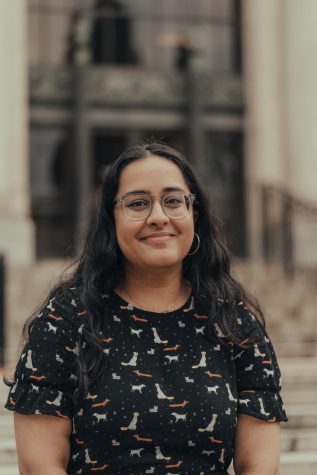Students left with excess dining dollars, UHDS working to extend expiration date
June 8, 2020
Many freshmen and other students were left with an excess of dining dollars after Oregon State University campus closures due to COVID-19—leaving students wondering what will happen to their rollover funds.
“Just as a clarification, rollover money are dining dollars that aren’t used during the year in which [they are] purchased. Our current policy allows students to continue to use those dining dollars over the course of two academic years instead of expiring in the year that they were purchased. Dining dollars that are not spent over the course of those two years are invested back into the dining program and into reducing the overall cost of dining for students,” said Executive Director of University Housing & Dining Services, Stephen Jenkins.
Regarding the effect of COVID-19 on dining dollars, Jenkins said UHDS is working to extend the expiration date of dining dollars that were supposed to expire in June 2020.
“Residents with dining dollars that were purchased in [the] academic year 2019-20 will roll over to next year, and students will have another academic year to spend those dollars. For those students who had rollover dollars that were set to expire in June 2020, we are working on extending the expiration date by another year so they would not expire until June 2021 in light of the current circumstances,” Jenkins said.
According to Jenkins, any unused dining dollars from spring term 2020, are credited back to students. They will only be charged for any spring term dollars used.
Residents at OSU can choose from one of four dining plans, which allot dining dollars they can spend at UHDS dining locations on campus.
With public health measures being implemented, some students are worried about unused dining dollars in their accounts.
Sophie Baur, a first-year student majoring in biological data sciences, said she had between six to eight hundred dollars of rollover funds left in her account when she went home for spring break in late March. She said she had planned to use those funds the following year at the Cascadia grocery store on campus.
“We’re college students, it’s not like we have a lot of extra money. So I’d like to be able to use that in some way, even if it’s just for grocery store money; I’m kind of relying on that to feed myself,” Baur said.
Baur is understanding of the unprecedented nature of the situation but said she would have tried to use more of her funds if she had known she would not have been on campus for the rest of the year.
“There’s no way we could have anticipated coronavirus and I would have tried to use most of my dining dollars by the end of this year, if it wasn’t for, you know, being pretty much kicked out of the dorms and having to move home—so it’s kind of not fair, you can’t anticipate that,” Baur said.
Carson Flores, a first-year OSU student, was originally on dining plan two, then switched to dining plan three, because she had a lot of excess rollover money. Currently, she said there is about $400 left in her account.
“It’s a situation that’s out of our control that’s keeping a lot of people from using their dining dollars. Especially for people who are having a harder time affording college, that that money is really necessary for them. People really need whatever help they can get,” Flores said.
UHDS COVID-19 Frequently Asked Questions can be found on the UHDS website.

























































































































